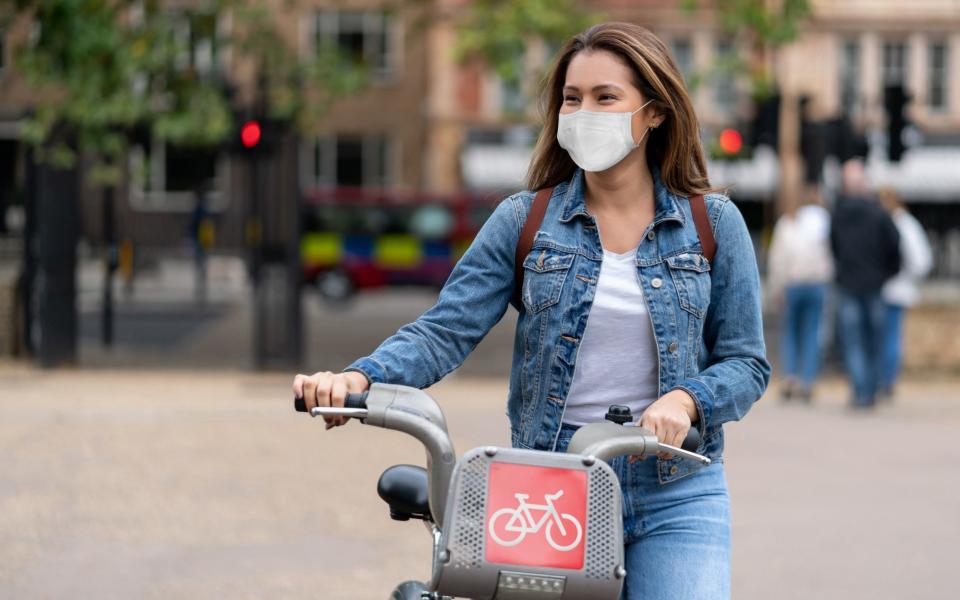Pandemic took brakes off women cyclists as they felt safer on quieter streets

The cycling gender gap narrowed during the pandemic as women felt safer on quieter roads, new government figures suggest.
Before the Covid crisis, men made three times as many cycling trips as women, with women consistently more likely to say they did not feel safe on the roads.
However, this gap narrowed last year, with men making twice as many cycling trips as women, according to new figures from the Department for Transport (DfT).
The number of cycling trips made by women increased by 56 per cent, compared to a 12 per cent increase in the number of trips by men.
The spike could be attributed to the 21 per cent drop in vehicle traffic, the DfT said, as well as measures to install bike lanes and low traffic neighbourhoods.
Overall, the number of miles cycled per person increased by 62 per cent last year compared to 2019 to reach the highest level since 2002 as people avoided congested public transport.
Walking trips decreased by 16 per cent, but trips in excess of a mile increased by seven per cent, likely to reflect fewer short walks to transport hubs and increased leisure walking.
Last year, the Government announced a £2 billion package to create a “new era” for walking and cycling in response to the pandemic, which included money for local authorities for new bike lanes.
However, the movement has led to conflict in some areas over the rollout of low traffic neighbourhoods, which some residents oppose because of restrictions on car use and fears they displace air pollution to busier roads, although studies suggest this is not the case.
Grant Shapps, the Transport Secretary, has said half of all journeys will need to be walked or cycled in towns and cities by 2030 to enable the country to meet its climate change targets.

 Yahoo News
Yahoo News 